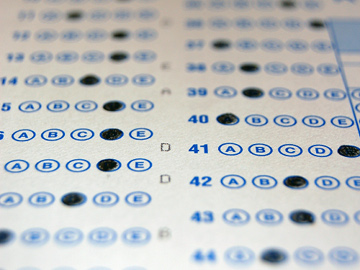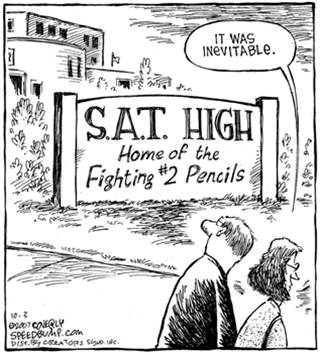The Avengers have concluded our blog “Standardized Failure” after four weeks of posting an opposing view to administering standardized tests. Overall, we found a few general themes that support our argument against standardized testing:
o They do not measure the ability to think deeply or creatively in any field
- Standardized tests measure test taking ability
o Teaching to the test leaves deficiencies in a child’s knowledge and performance later in life
- It lends more toward memorization than application of critical skills
o Failed standardized tests lead to grade retention
- It increases a student’s chance of dropping out
- Lowers his or her probability of obtaining a successful career in the future
- Failing a test will more than likely lead a student to criminality
o Standardized tests put students who are minorities or lower class at a disadvantage
- Many students who take these tests speak English as a second language
- Students from affluent families have more resources to their advantage

Created by Adam Zyglis
Here is an alternative that could possibly replace standardized testing:
o Authentic or Performance Testing
- Structured around doing rather than bubbling in answers
- Ask students to make a product or complete a task, performance or exhibition
If you are interested in learning more about our position on standardized testing, we advise you to start with these posts:
- Standardized Testing Leads to Increased Grade Retention
- Calling for Change
- Accommodate, Don’t Discriminate
- New York Defends Standardized Tests for Students as Movement Against Them Builds
We appreciate your support over these past four weeks and would like for our followers to continue pushing against standardized testing.










